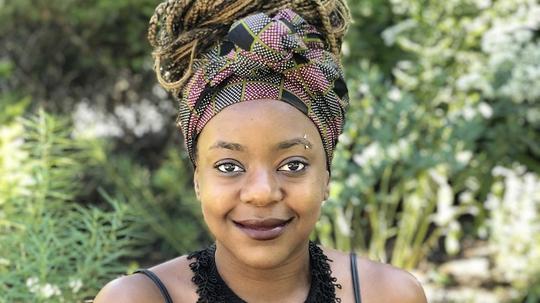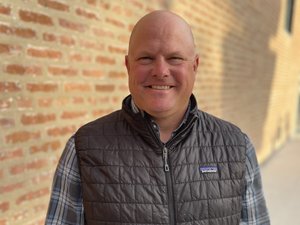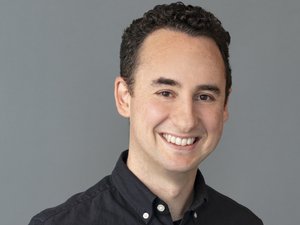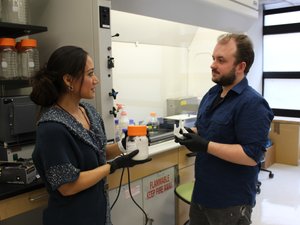
Kimberley Mbayiwa registered her company Ricafrica, an online marketplace for African goods, in 2016, but she realized that she was on the right track after the movie Black Panther debuted in the U.S.
The film, which earned more than $1 billion internationally, uncovered an underlying desire for more Afro-centric content and consumer goods, she said. So, in April 2018, she kickstarted the company operations.
“While I’ve been living here, I’ve gained an appreciation for how much African creativity has always and continues to influence and inspire global creative industries such as fashion, art, film and music,” Mbayiwa said. “Even more exciting has been witnessing the effort of people of African descent who are increasingly trying to connect with their African roots.”
A finalist in the October 2018 South Side Pitch contest at the University of Chicago’s Polsky Center for Entrepreneurship and Innovation, Ricafrica sells goods from vendors in Zimbabwe, Kenya and South Africa. The company is hosting a pop-up shop at the upcoming Hyde Park Flea Market October 28. Mbayiwa said she wants to create a Ricafrica app and add more products like home goods, beauty products and art to the platform in the future, eventually molding it the “Amazon of African goods.”
Mbayiwa, a Zimbabwe native, moved to the U.S. to earn her bachelor’s degree in psychology and went on to earn her master’s in global health policy and administration. Over time, she noticed there was a desire for African goods in the U.S., but significant barriers prevented consumers from buying them.
“It’s a number of problems. It’s physical, social, political, logistical, financial. It’s a whole lot of issues that are actually solvable now especially with increasing access to technology across Africa,” Mbayiwa said. “Some of the issues that they face, for example, are financial. Platforms like Amazon or Etsy where they could list their products for sale, the payment platforms are not appropriate for the financial technology that Africans have.”
Some African vendors don’t have bank accounts and rely instead on other alternative banking products, making it difficult to access their profits using payment platforms like PayPal, Mbayiwa said.
About 1.7 billion people around the world are unbanked, according to the Global Findex statistics. While the use of formal banking institutions stood still, the use of mobile money accounts has increased to about 21 percent in Sub-Saharan African countries including Kenya, Senegal, Uganda and Tanzania. In northern African and Middle Eastern countries, only 52 percent of men and 35 percent of women have bank accounts. The continent’s two leading payments platforms are M-Pesa and MTN Mobile Money, according to a McKinsey analysis.
The company purchases items from vendors in Kenya and South Africa and sells them to consumers online, but it also has vendors who are set up to sell directly on the platform. Those sellers are charged a 16 percent commission fee plus a $0.30 listing fee, Mbayiwa said, adding that the commission fee may change in the future. Vendors are paid through whichever platform they prefer.
Talking with vendors one-on-one to understand what problems they face has helped Ricafrica to build trust and attract businesses to the platform, Mbayiwa said. Beyond serving as a platform to list their products, she said Ricafrica also wants to provide workshops and perhaps financing to help African entrepreneurs break into new markets. In the meantime, she said she is looking to use social media and SEO marketing to reach potential consumers, preparing for a photoshoot to better present the accessories to buyers and getting ready for the holiday shopping season.
Through the platform, Mbayiwa wants to not only help Americans connect with African cultures, but also use African entrepreneurship to support their economies.
“This is way overdue to have more representation of African businesses in the global marketplace,” Mbayiwa said. "Our hope is to fill that gap and bring Africa to the world.”








